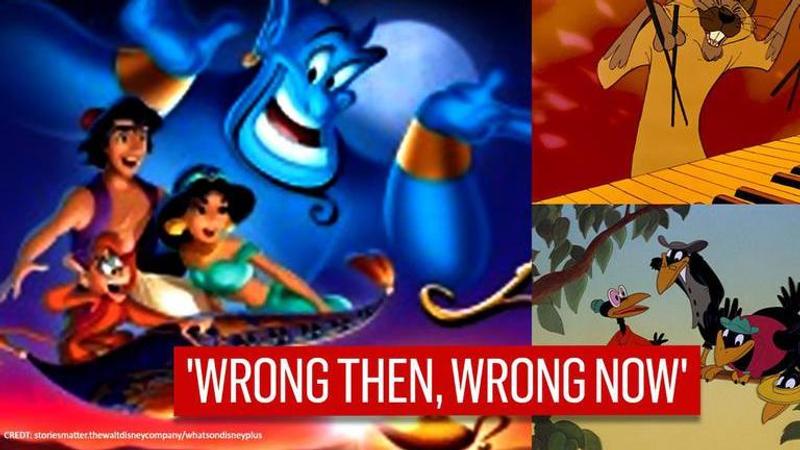Published 12:31 IST, October 20th 2020
Disney makes amends for stereotypes in classic films; adds negative depiction disclaimer
In view of shifting perceptions of culture, Disney will now warn its young viewers about the negative portrayal of non-white cultures in films like 'Aladdin'.

Disney has made changes to some of its classic films to keep up with the changing perceptions amid issues arising due to stereotyping cultural depictions in movies. Films like Dumbo, Peter Pan, Aladdin that have entertained generations of children in the past will now be showcased on Disney's OTT platform with a disclaimer about the scenes that include "negative depictions" or "mistreatment of people or cultures".
The 12-second disclaimer, which cannot be skipped, tells viewers, in part: “These stereotypes were wrong then and are wrong now. Rather than remove this content, we want to acknowledge its harmful impact, learn from it and spark conversation to create a more inclusive future together.” The disclaimer follows a similar, yet less extensive, warning from Disney in 2019 that told viewers: “This program is presented as originally created. It may contain outdated cultural depictions.”
The message will direct viewers to a website that explains the problematic scenes in some of Disney's classic films like Aladdin, Peter Pan, Dumbo, The Aristocats among others. The said website explains through examples how some of the scenes portray a negative image of non-white cultures. For instance, in The Aristocats, the cat is depicted as a racist caricature of East Asian peoples with exaggerated stereotypical traits such as slanted eyes and buck teeth, and in "The Song of the Roustabouts" in Dumbo, faceless Black workers toil away to offensive lyrics like "When we get our pay, we throw our money all away."
Dr. Hemant Shah, an Indian professor in the US who studies portrayals of race and ethnicity in film and media, said to an international magazine, that if white children consumed content with racist portrayals, it could “normalize the stereotype” for them and make it “normal for them not to call out stereotypes or racist behaviors they see in their lives”. For children of color, he claimed such portrayals in cinema could lead to self-esteem issues like “They may have a sense of, ‘That’s how I am?'".
Though he was skeptical that the disclaimer would have a large impact on children, Dr. Shah said that racist scenes offered learning opportunities when children watched them with their parents at home or in the classroom as part of media literacy education. Disney “ought to also have some sort education program” about the stereotypes along with the disclaimer, he said.
Updated 12:31 IST, October 20th 2020




